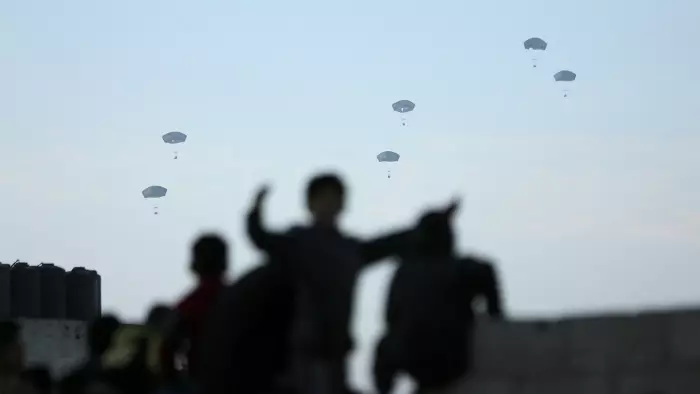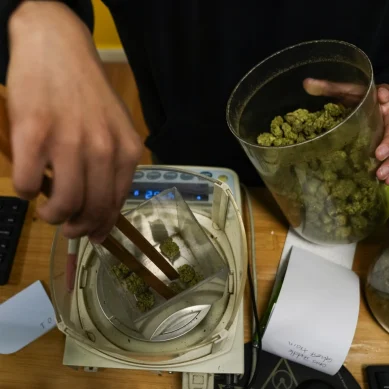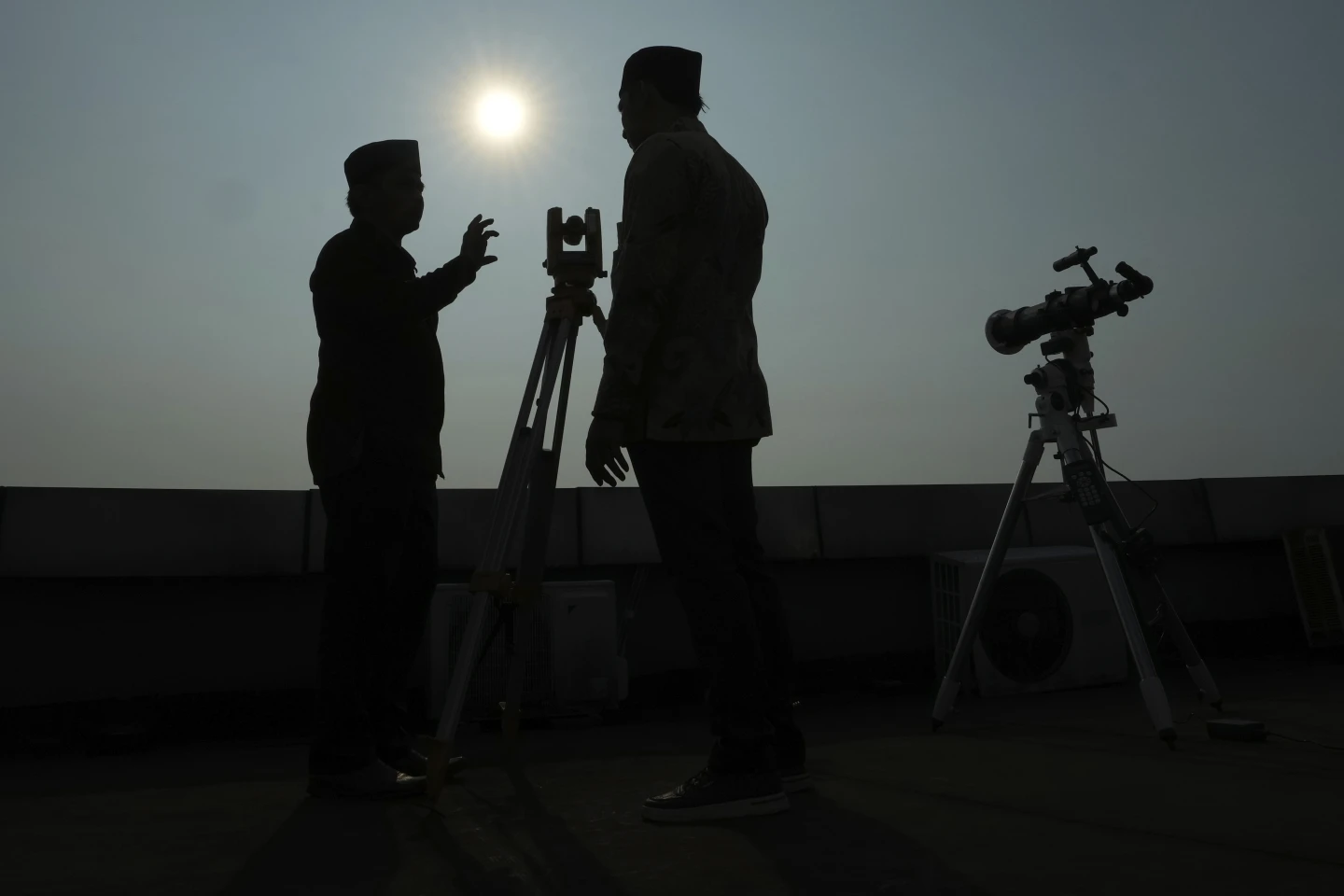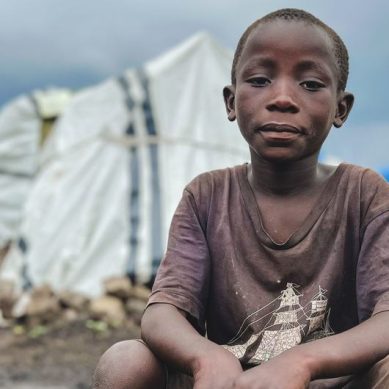
On February 29, the killing of more than 100 people waiting for food aid in Gaza City put a spotlight on the extreme deprivation and violence facing those who have remained in the north of the enclave during Israel’s nearly five-month long military campaign and siege.
Israeli authorities acknowledged that troops shot some people in the crowd that gathered on a coastal road to receive aid from a rare delivery to the north, but claimed most of the casualties were caused by a stampede or were run over by the aid trucks.
Witnesses and doctors treating the wounded, however, said many of the victims appeared to have been shot. Israeli forces have reportedly opened fire on people waiting for aid multiple times in recent months.
On January 26, the International Court of Justice ordered Israel to take “immediate and effective” steps to enable the provision of basic services and the delivery of humanitarian assistance in Gaza as part of its interim ruling in the case brought by South Africa accusing Israel of committing genocide in the enclave.
In the month following the order, the already limited amount of aid entering Gaza dropped by half, according to UN officials. Young children have begun to die of dehydration and malnutrition, and over 500,000 people are on the brink of starvation.
The situation in the north is particularly dire. Israel ordered residents to evacuate northern Gaza early in the war – a move that raised international alarm and likely violated international law. But hundreds of thousands of people are believed to have remained.
Interviews in the aftermath of the tragedy with many people in northern Gaza who said people are eating grass to survive, while animal feed – which many have turned to grinding into flour for bread as a last resort – is becoming increasingly scarce.
In Beit Hanoun, in northern Gaza, Mohammad al-Madhoun said he has been unable to find milk for his daughter Sila. The two-year-old is so dehydrated she can no longer walk.
“She began vomiting blood after we forced her to eat bread made from animal feed, which we soaked in water to make it easier for her to chew,” al-Madhoun said. “Every day, I hear about new deaths due to malnutrition and I fear that Sila will be the next.”
She weighs just six kilos – half as much as she did before the war began, he said. “Sila is my first child. I have been married for two years, and saw all my hopes in her. But today I am unable to provide milk for her,” al-Madhoun added.
The UN has been unable to deliver food aid to the north since January 23, with Israeli authorities continuing to deny access to UN aid convoys, which their troops have fired on. In late February, the World Food Programme and the UN agency for Palestinian refugees, UNRWA, suspended aid delivery in the north, saying it had become impossible to operate safely.
The UN was not involved in the February 29 aid convoy, which was coordinated by the Israeli military and delivered by Palestinian contractors.
COGAT, the Israeli government agency responsible for coordinating with humanitarian agencies to deliver aid in Gaza, referred questions about delivery of aid in northern Gaza to the Israeli military, which did not respond to a request for comment.
Jordan, Egypt, Qatar, the UAE, the UK, France and the United States have begun airdropping aid into Gaza. But aid agencies say this is an expensive and ineffective way to deliver assistance.
“What we need first and foremost is a ceasefire, to just put an end to this.”
Given US and UK support for Israel’s war – including the US continuing to sell weapons to Israel and vetoing ceasefire resolutions at the UN Security Council – critics have called the airdrops “performative” and “humanitarian aid theatre”. There is more Western countries can do, they say, to pressure Israel to open more border crossings with Gaza and remove the barriers preventing meaningful humanitarian operations on the ground.
“What we need first and foremost is a ceasefire, to just put an end to this,” said Shaina Low, a spokesperson for the Norwegian Refugee Council. That would resolve, or at least improve, many of the barriers aid workers currently face, she said.
Low added that international law requires Israel, as the occupying power in Gaza, to provide food and medical aid to civilians: “Those responsibilities fall on Israel, and it’s the humanitarian agencies who are doing the best that they can to supplement when Israel has completely neglected or rejected its international obligations.”
Sila’s story is not an isolated incident. In northern Gaza, one in six children under the age of two are now acutely malnourished, according to UN data. UNICEF spokesperson Laura Bill said that, while the agency has been able to do limited surveys to understand the extent of malnutrition in the north, they have repeatedly been denied access to deliver aid to treat it.
A man holds a hand of a Palestinian baby hospitalised due to malnutrition and dehydration at Kamal Adwan Hospital in Beit Lahia, Gaza on March 2, 2024.
With most medical aid also blocked, people in northern Gaza are being forced to go without medications for chronic conditions, and doctors said they have run out of antibiotics and have been forced to amputate the limbs of people with traumatic injuries to prevent deaths from infection.
Mohammad’s step-brother, Sami al-Madhoun, who also lives in Beit Hanoun, said his mother has run out of insulin to manage her diabetes. She has become so malnourished and dehydrated she is now passing out several times a day.
His family has begun eating grass and he said Israeli troops have fired at them on several occasions as they forage. “These are our choices: If we aren’t killed, we will die of hunger,” he said.
In the Jabalia refugee camp, also in the north, Rami Zaqout, 23, is sheltering about 30 displaced people in his home. This week, a three-year-old girl whose father had been killed knocked on his door late at night, asking for food.
Israeli troops withdrew from the area around the beginning of the year, but quadcopter drones sometimes fire on people in the street, and shells continue to land in the area, he said.
In one of the only signs of local government activity, a few police officers patrol occasionally, largely in civilian clothes for fear of being targeted by Israeli forces.
Because local authorities have stopped coordinating with humanitarian convoys and because of the scarcity of food caused by the Israeli aid blockade, food drop-offs have become chaotic and dangerous, Zaqout said – something NGOs have for months been warning would happen if more aid wasn’t allowed into Gaza.
“People here almost kill each other due to the intensity of the stampede,” Zaqout said. Others have been killed by “sniping by gunmen whose identities are unknown, and some of them were killed by the Israeli army”, he added.
Also in Jabalia, Hossam Masoud, 35, described searching for leftover food in garbage containers and under destroyed and abandoned homes.
“Getting a meal of animal feed grains has become a difficult task. It forces me to walk for about four hours in the hope of finding even a kilo of it. I fall to the ground many times because my body has become thin and I am no longer able to walk,” Masoud said. He has lost about 20 kilos since the start of the war.
With no clean water available, people are drinking rainwater from a basin in the centre of the camp, which also serves as a wastewater drain. Many have become sick from the water, Masoud said.
Like many people in northern Gaza, Masoud said he had been eating animal feed, as a supplement to a single bag of flour – now almost empty – which he took from an UNRWA truck in January. He and a cousin were also able to take rice, oil, and sugar from the truck. But armed men in civilian clothes, with their faces covered, told Masoud he had more than he needed, and took everything but the flour.
- The New Humanitarian report











